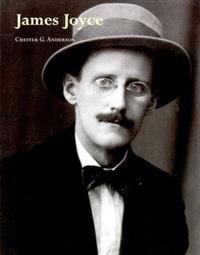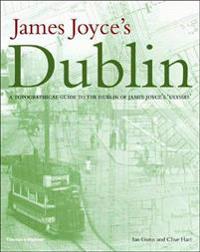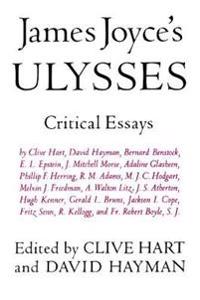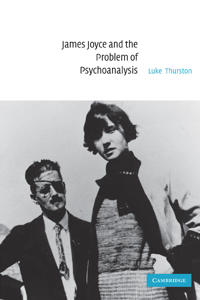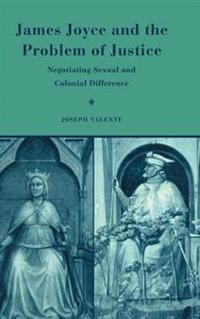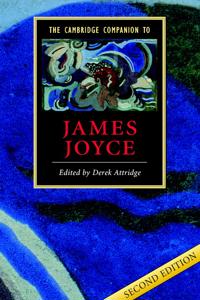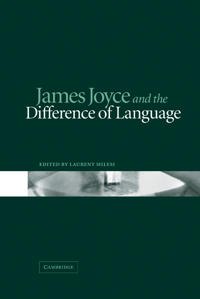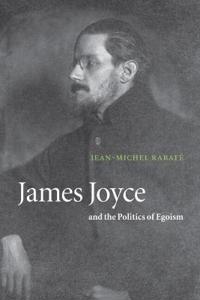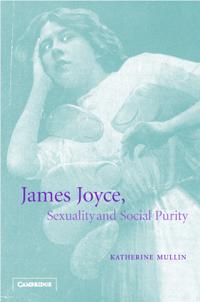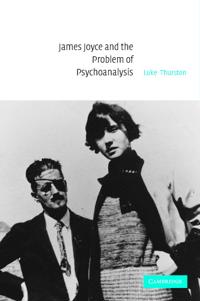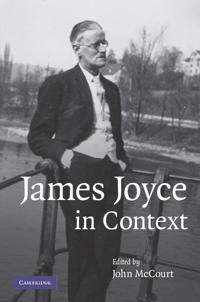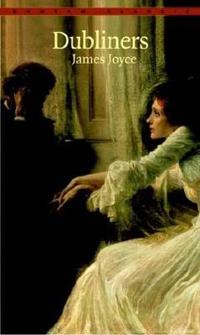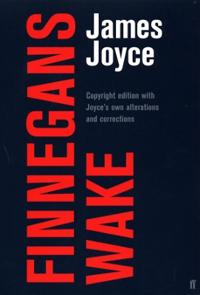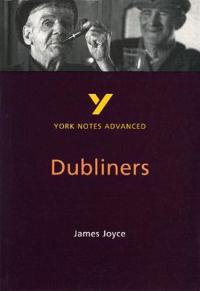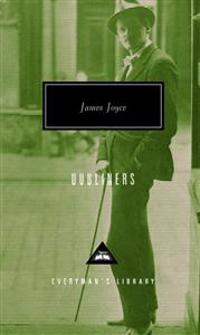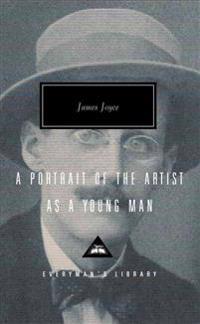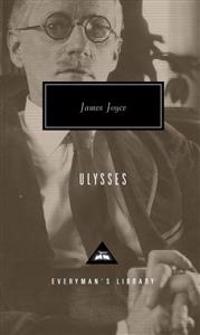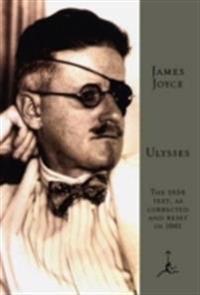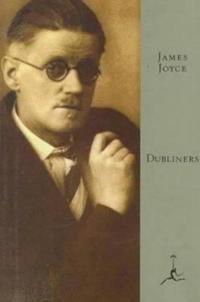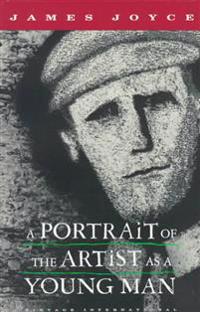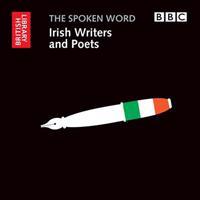James Joyce (Häftad)
avChester G. Anderson
ISBN: 9780500260180 - UTGIVEN: 198607James Joyce remains a mysterious figure, and yet his books concern his own life: his friends, loves, and, above all, the city of Dublin. Professor Chester Anderson here examines Joyce as one of the great modern writers, but also explores his life, visiting all the places where he lived and worked, a[...]
James Joyce's Dublin (Inbunden)
avIan Gunn, Clive Hart
ISBN: 9780500511596 - UTGIVEN: 200404'⦠conveys a remarkable amount of information in a very readable volume'
- Robert Nicholson, curator, James Joyce Museum
James Joyce's Dublin is published on the centenary of 'Bloomsday' the day of the action in Ulysses.
Among other things, Ulysses is [...]James Joyce's Ulysses
ISBN: 9780520032750 - UTGIVEN: 1977-01Joyce scholars describe and analyze each chapter of Ulysses
James Joyce and the Problem of Psychoanalysis (Pocket)
avLuke Thurston
ISBN: 9780521128834 - UTGIVEN: 201002From its very beginning, psychoanalysis sought to incorporate the aesthetic into its domain. Despite Joyce's deliberate attempt in his writing to resist this powerful hermeneutic, his work has been confronted by a long tradition of psychoanalytic readings. Luke Thurston argues that this very antagon[...]
James Joyce and the Problem of Justice
ISBN: 9780521473699 - UTGIVEN: 1995-08This is the first full-length study of James Joyce to subject his work to ethical and political analysis. It addresses important issues in contemporary literary and cultural studies surrounding problems of justice, as well as discussions of gender, homosociality and the colonial condition. Valente u[...]
The Cambridge Companion to James Joyce (Pocket)
avDerek Attridge
ISBN: 9780521545532 - UTGIVEN: 200406This second edition of The Cambridge Companion to Joyce contains several revised essays, reflecting increasing emphasis on Joyce's politics, a fresh sense of the importance of his engagement with Ireland, and the changes wrought by gender studies on criticism of his work. This Companion gathers an i[...]
James Joyce and the Difference of Language
ISBN: 9780521623377 - UTGIVEN: 2003-09James Joyce and the Difference of Language offers an alternative look at Joyce's writing by placing his language at the intersection of various critical perspectives: linguistics, philosophy, feminism, psychoanalysis, postcolonialism and intertextuality. Combining close textual analysis and theoreti[...]
James Joyce and the Politics of Egoism
ISBN: 9780521804257 - UTGIVEN: 2001-08In this book Jean-Michel Rabate approaches the Joycean canon through the concept of 'egoism'.
James Joyce, Sexuality and Social Purity (Inbunden)
avKatherine Mullin
ISBN: 9780521827515 - UTGIVEN: 200307In James Joyce, Sexuality and Social Purity, Katherine Mullin offers a richly detailed account of Joyce's lifelong battle against censorship. Through prodigious archival research, Mullin shows Joyce responding to Edwardian ideologies of social purity by accentuating the 'contentious' or 'offensive' [...]
James Joyce and the Problem of Psychoanalysis (Inbunden)
avLuke Thurston
ISBN: 9780521835909 - UTGIVEN: 200407From its very beginning, psychoanalysis sought to incorporate the aesthetic into its domain. Despite Joyce's deliberate attempt in his writing to resist this powerful hermeneutic, his work has been confronted by a long tradition of psychoanalytic readings. Luke Thurston argues that this very antagon[...]
James Joyce in Context (Inbunden)
avJohn McCourt
ISBN: 9780521886628 - UTGIVEN: 200903This collection of original, cohesive and concise essays charts the vital contextual backgrounds to Joyce's life and writing. The volume begins with a chronology of Joyce's publishing history, an analysis of his various biographies and a study of his many published and unpublished letters. It goes o[...]
Dubliners (Pocket)
avJames Joyce, Brenda Maddox
ISBN: 9780553213805 - UTGIVEN: 199003These 15 stories, Joyce's first published prose, are complete in themselves, even though they got further development in ULYSSES. The author called them "a series of chapters in the moral history of his community." They bear the unmistakable stamp of Joyce's genius and are an augury of the masterwor[...]
York Notes on James Joyce's "Dubliners" (Häftad)
avJohn Brannigan
ISBN: 9780582329119 - UTGIVEN: 199804'York Notes for GCSE' offers a useful approach to English Literature and aims to help readers achieve a better grade. Updated to reflect the needs of today's students, the new editions are filled with detailed summaries, commentaries on key themes, characters, language and style, illustrations, exam[...]
James Joyce
ISBN: 9780631227021 - UTGIVEN: 2002-06The difficulties that students face when tackling Joyce's works are often addressed by focusing on plot, implying that the "real" books are hidden behind the author's complex language and style. This reader-friendly introduction offers an alternative approach, suggesting that close attention to Joyc[...]
Principles of science for nurses (Pocket)
avJames Joyce
ISBN: 9780632057696 - UTGIVEN: 2002-06-06This introductory textbook provides nursing students with the essential bioscience they need to complete their nursing studies. It explains the scientific concepts that are related to all nursing practices and procedures from the simplest to the most advanced.[...]
Dubliners (Inbunden)
avJames Joyce
ISBN: 9780679405740 - UTGIVEN: 199111Introduction by John Kelly
A Portrait of the Artist as a Young Man (Inbunden)
avJames Joyce
ISBN: 9780679405757 - UTGIVEN: 199110Ulysses (Inbunden)
avJames Joyce, Craig Raine
ISBN: 9780679455134 - UTGIVEN: 199710One of the greatest novels of the twentieth century, Ulysses has had a profound influence on modern fiction. In a series of episodes covering the course of a single day--16 June 1906--the novel traces the movements of Leopold Bloom and Stephen Dedalus through the streets of Dublin. Ulysses has been [...]
Ulysses (Inbunden)
avJames Joyce
ISBN: 9780679600114 - UTGIVEN: 199209This revised volume follows the complete unabridged text as corrected in 1961. Contains the original foreword by the author and the historic court ruling to remove the federal ban. It also contains page references to the first American edition of 1934.[...]
The Dubliners (Inbunden)
avJames Joyce
ISBN: 9780679600497 - UTGIVEN: 1994-05Dubliners was completed in 1905, but a series of British and Irish publishers and printers found it offensive and immoral, and it was suppressed. The book finally came out in London in 1914, just as Joyce's Portrait of the Artist as a Young Man began to appear in the journal Egoist under the auspic[...]
Ulysses (Pocket)
avJames Joyce
ISBN: 9780679722762 - UTGIVEN: 1990-06-01This account of several lower class citizens of Dublin describes their activities and tells what some of them were thinking one day in 1904[...]
A Portrait of the Artist as a Young Man (Häftad)
avJames Joyce, Richard Eric Brown
ISBN: 9780679739890 - UTGIVEN: 199304"I will not serve that in which I no longer believe, whether it call itself my home, my fatherland or my church: and I will try to express myself in some mode of life or art as freely as I can and as wholly as I can, using for my defence the only arms I allow myself to use -- silence, exile, and cun[...]
Irish Writers and Poets (CD-bok)
avJames Joyce, Edna O'Brien, W. B. Yeats
ISBN: 9780712351263 - UTGIVEN: 2013-03As a companion set to its existing surveys of British and American poetry and literature, the British Library is releasing a 3CD collection devoted to Irish poets and writers.[...]

